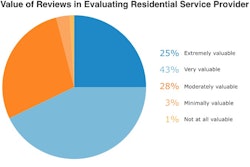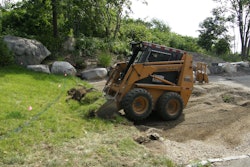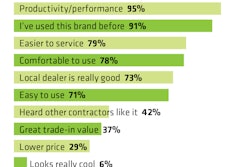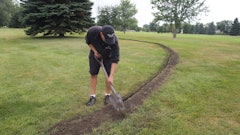A woman in Fort Meyers, FL, needed to have her roof and pool cage cleaned. She found an area pressure-cleaning contractor on the website Thumbtack, which allows service providers and consumers to find each other and negotiate jobs online. He seemed reputable and professional, so she hired him.
The pressure-cleaning work the contractor ended up doing was fantastic. The problem was that his cleaning chemicals appeared to have killed quite a bit of the woman’s landscaping. The woman says she’d alerted him to this potential, but he assured her that it would not happen due to his process of continually watering the plants as the cleaning chemicals were being applied to the surrounding structures.
See originally reported story and photos here
According to the woman, the contractor finally agreed to replace her dead plants, albeit after beating around the bush for quite some time (pun intended). But then he beat around the dead bushes some more, and then some more. But enough about that. Unfortunately these kinds of client/contractor squabbles happen on a regular basis, so we’ll leave it to them to hash out.
How much control does a landscaper need?
This story does, however, shine light on an important topic: How does a landscape or lawn care contractor contend with other types of contractors also working on a client’s property? Similarly, how do you contend with the property owners themselves?
We hear time and time again how homeowners, at least those tackling some of their lawn care tasks themselves, make things significantly harder for their hired lawn service contractor. For example, a homeowner who is insistent on mowing his lawn really short can make it much harder for the contractor hired to apply fertilizers and pesticides to get the best, most efficient results. And it’s not necessarily just the self-mowing homeowner who can cause this debacle. Sometimes it’s a separate contractor who specializes in just mowing and maintenance.
We’re hearing more and more how professional landscape contractors are adopting a full-service approach. They want to control everything—design and installation, irrigation, fertilizing and weed control, mowing and maintenance, and even tree care. This makes sense on a lot of fronts. First, they control everything, giving their crews a much higher chance of success. Secondly, they can earn more dollars per client. Thirdly, they create a point of difference compared to many of their competitors.
Of course, going the full-service route is not for everyone, especially smaller companies with just a few employees. But they, too, have their place in this industry. A good strategy for specialists is to form alliances with other contractors who offer different services. For example, if you do mowing and maintenance, is there another smaller company in your market that does fertilizing and pesticide application? If so, perhaps you can work together and refer clients back and forth.
The landscaping industry is big—and it serves a big, diverse marketplace. There are segments best-served by huge companies, and others best served by smaller companies. Some segments are best served by full-service companies, while others are best served by specialists. Figure out what you want to be and who your target market is. Whatever you decide, there is likely good opportunity.













![Doosan Bobcat Wacker Neuson Stack 2ec Js Pb V6e[1]](https://img.greenindustrypros.com/mindful/acbm/workspaces/default/uploads/2025/12/doosan-bobcat-wacker-neuson-stack2ecjspbv6e1.CPyyz8ubHn.png?ar=16%3A9&auto=format%2Ccompress&bg=fff&fill-color=fff&fit=fill&h=135&q=70&w=240)





